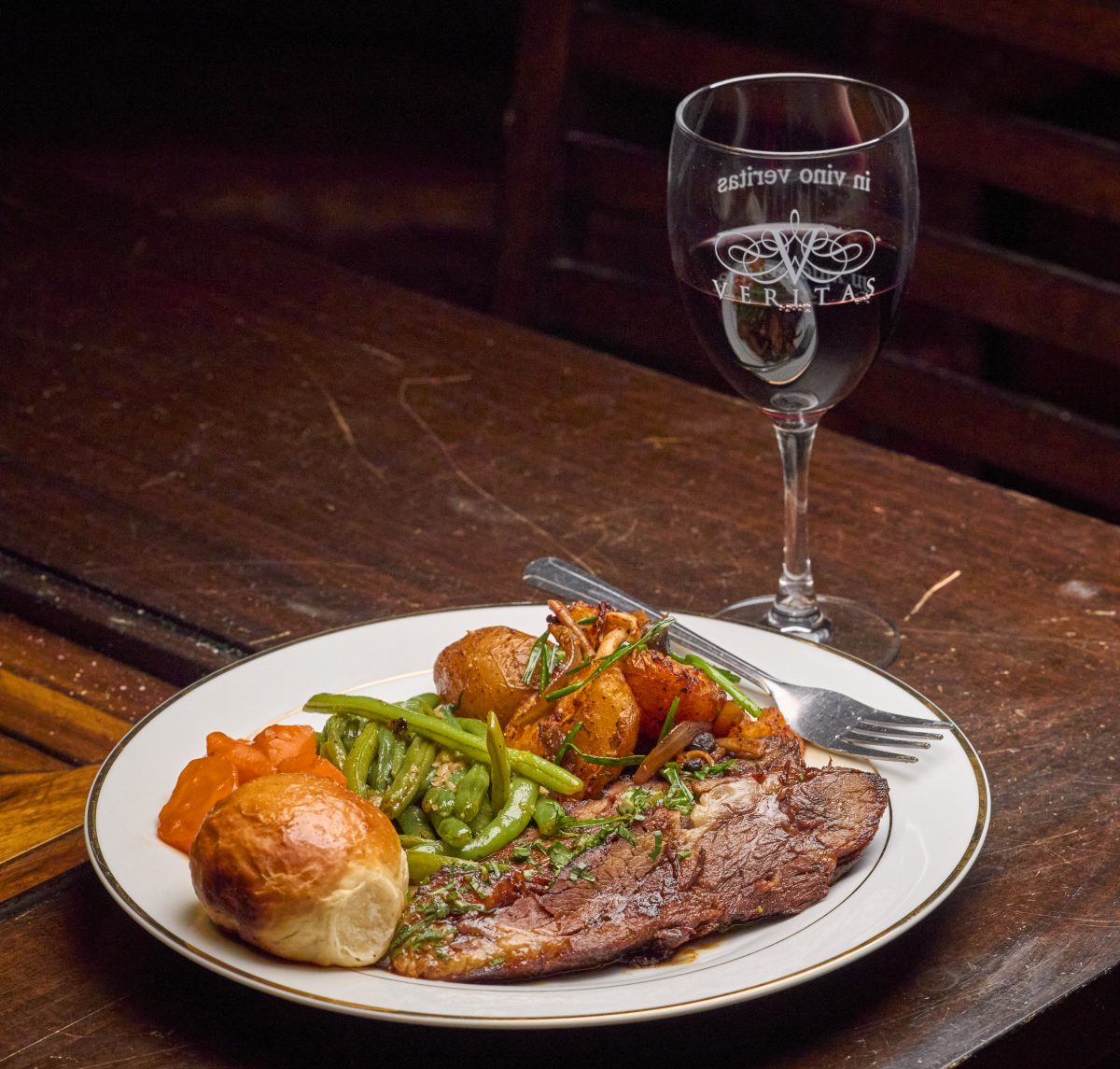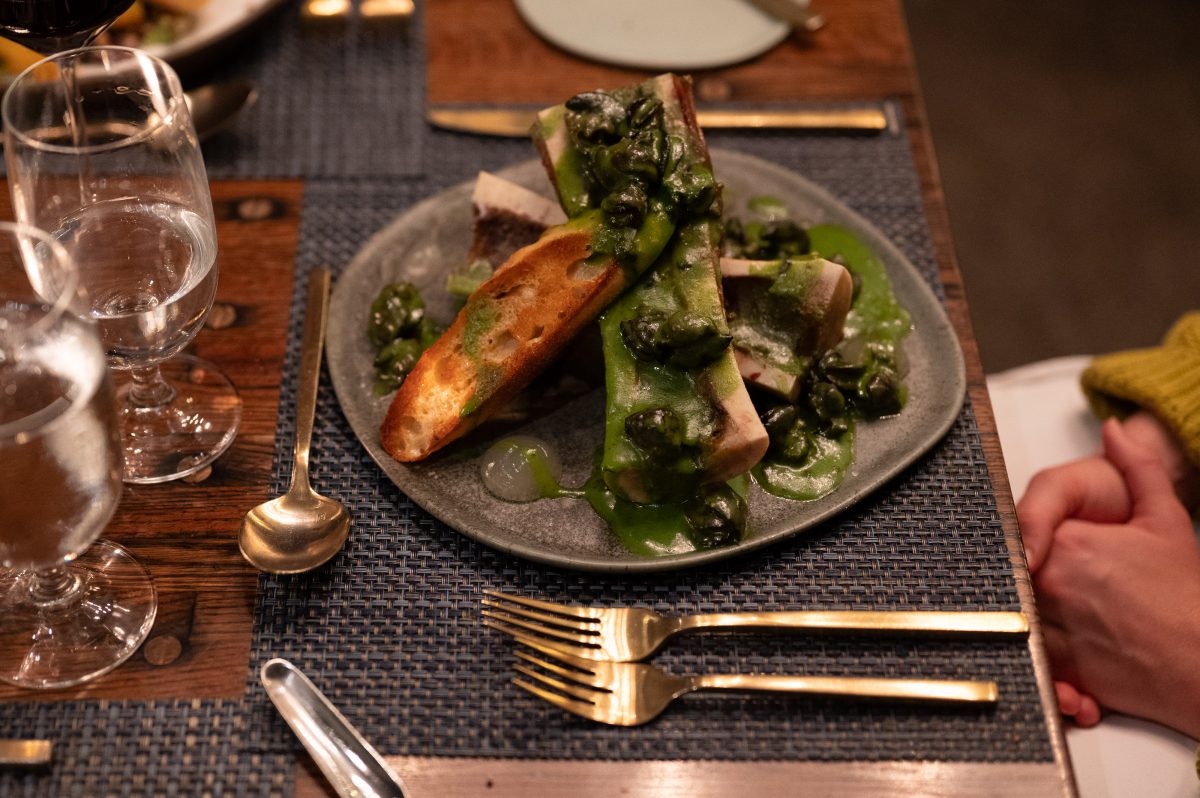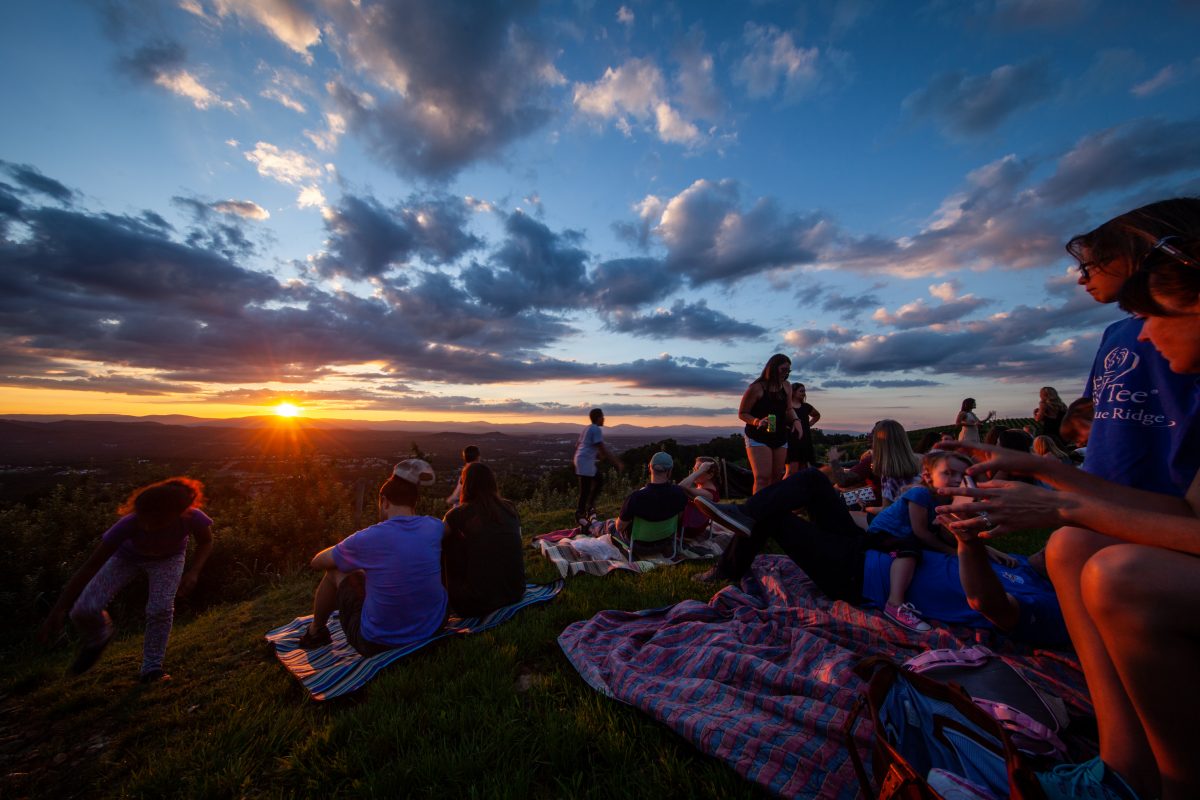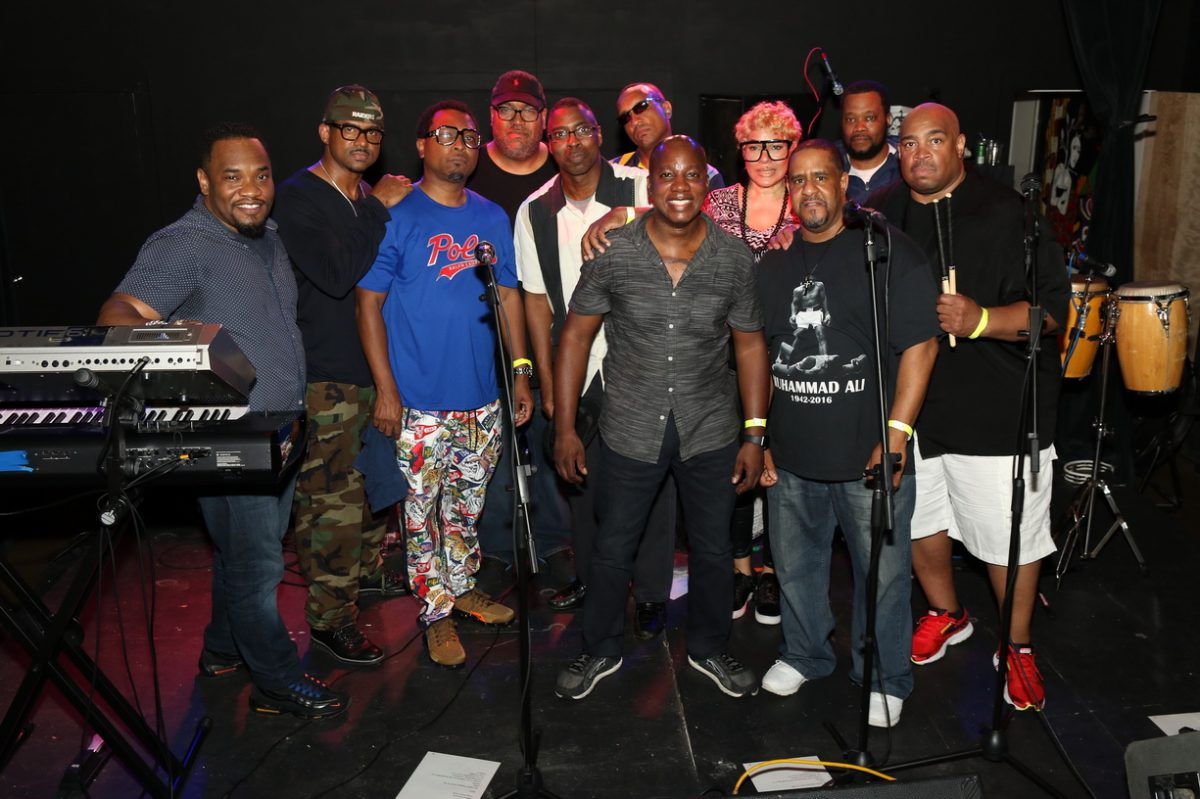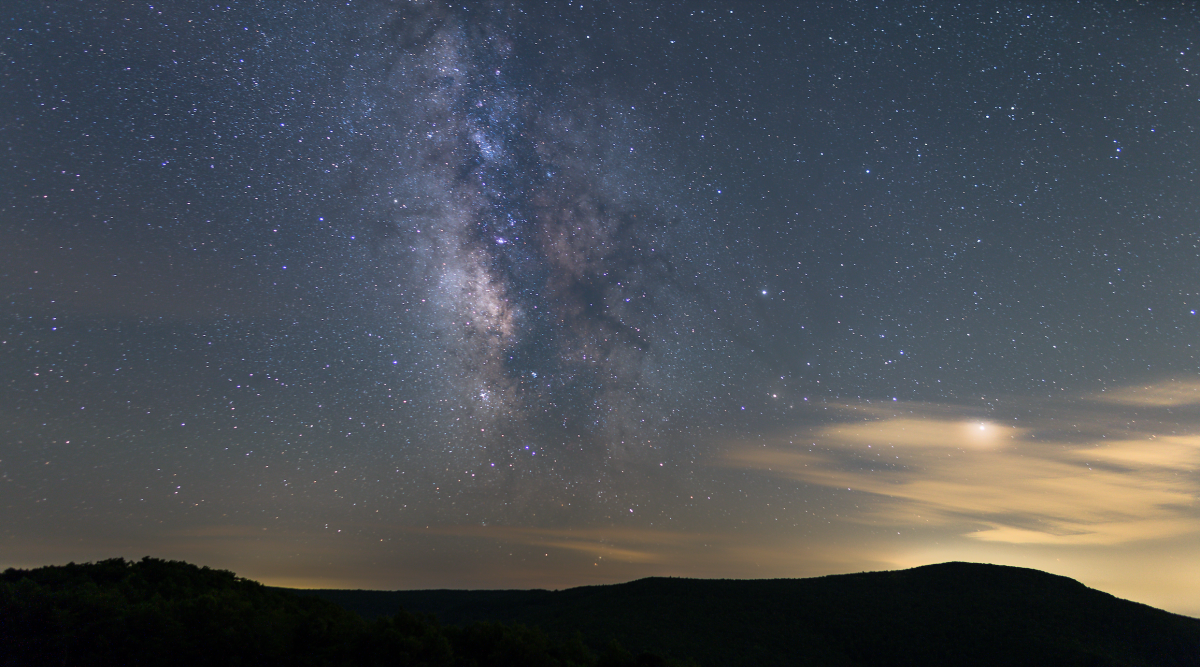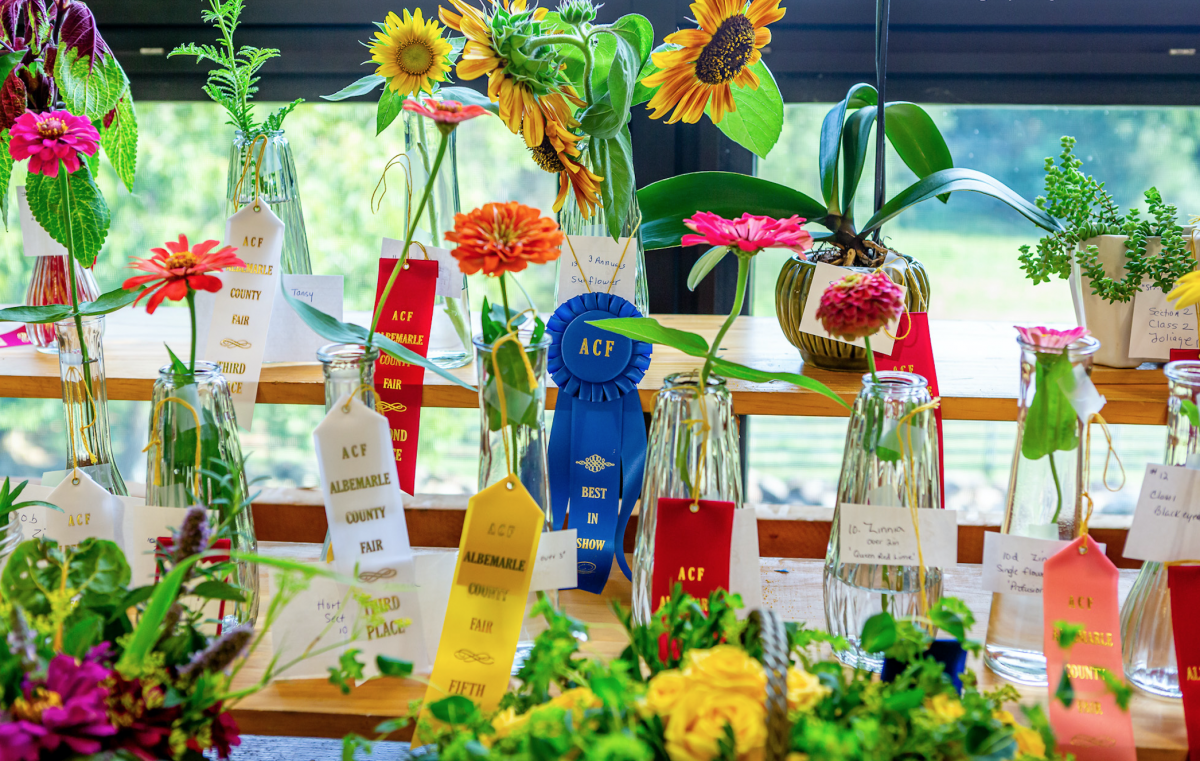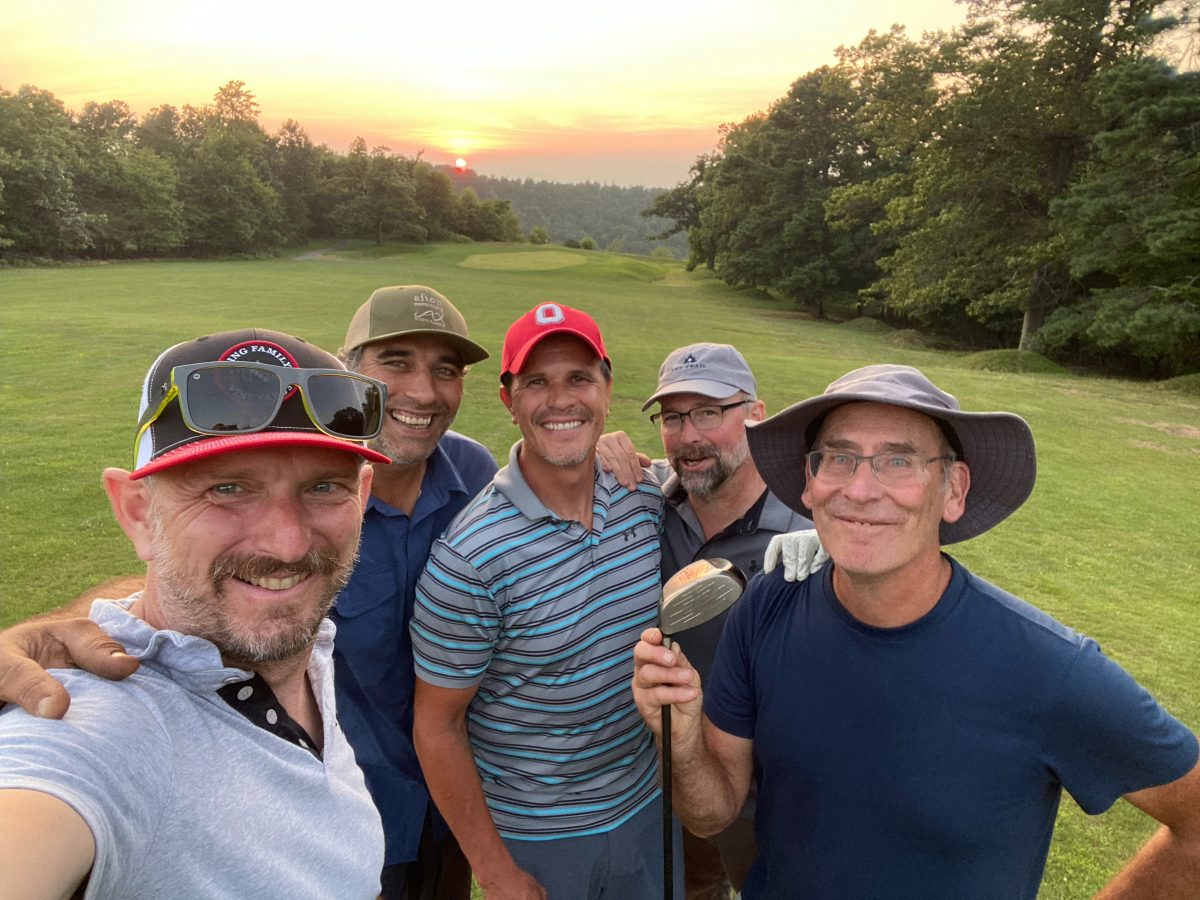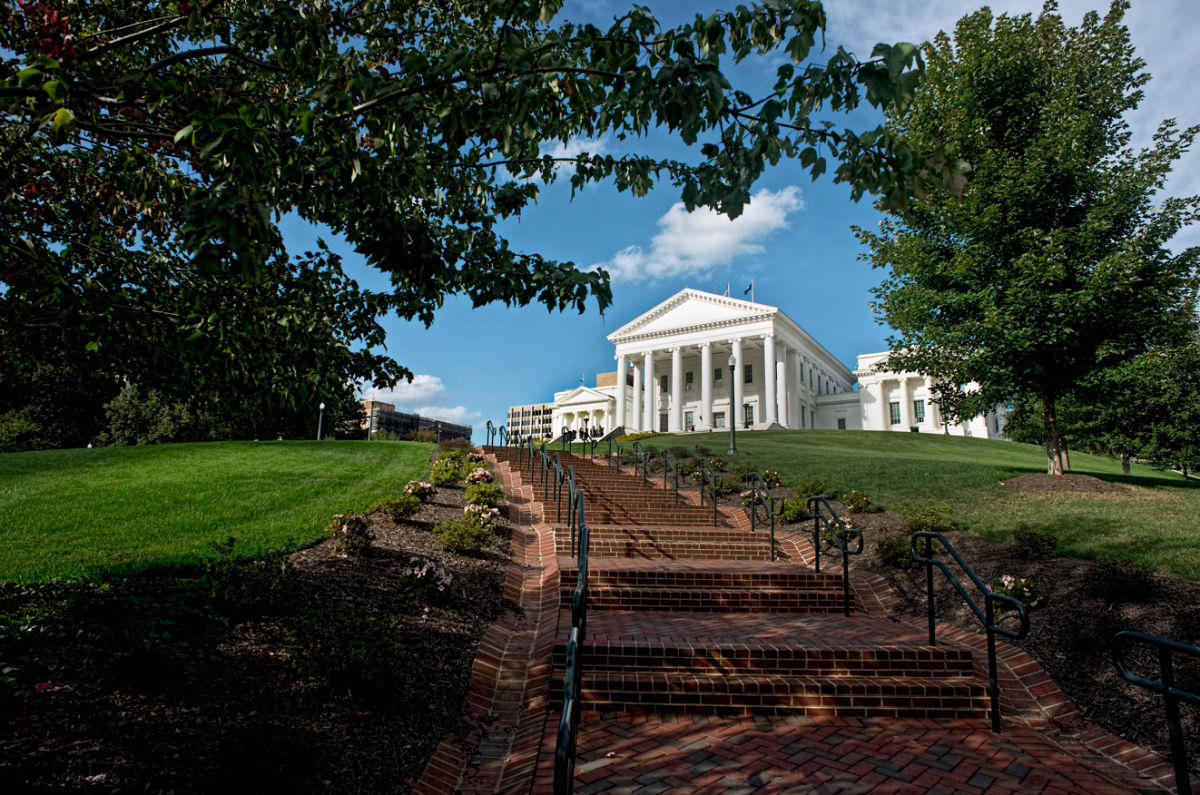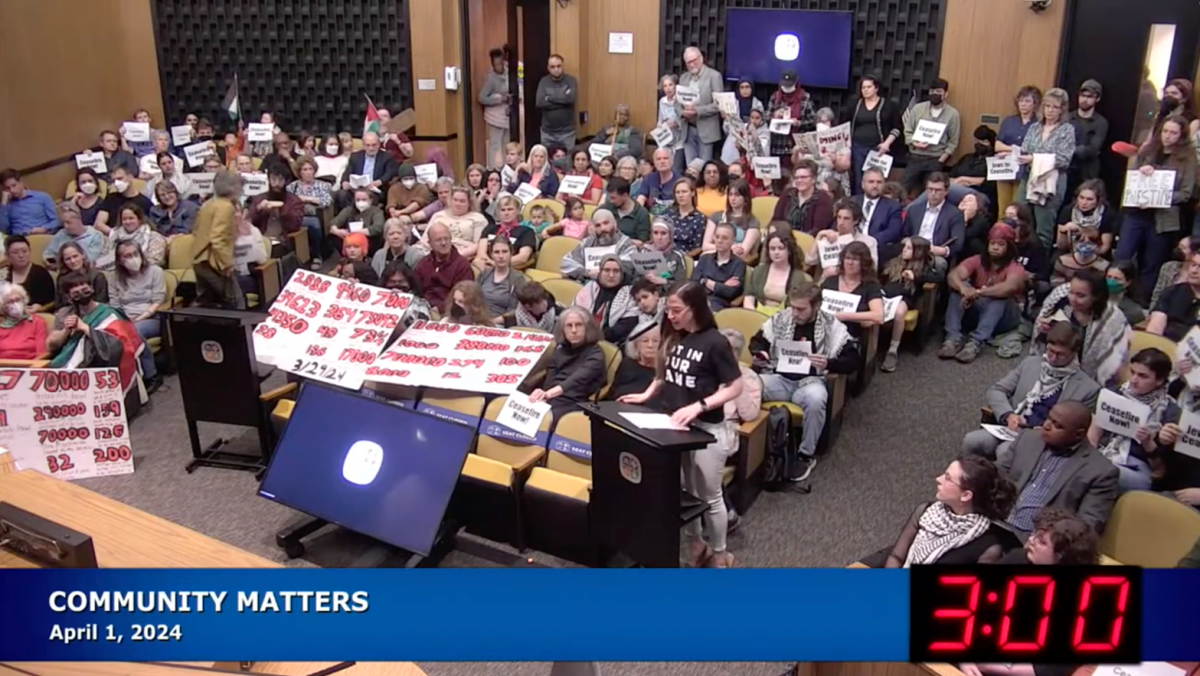When my husband and I arrived at Veritas Vineyards and Winery for the final Supper Series and Harvest Celebration in mid-October, I thought I’d prepared him for the evening. But as we approached a sea of round tables set for family-style dining, he was visibly horrified—visions of passing dishes and making small talk with strangers clearly dancing in his head.
As we mingled in the tasting room, the sun dipping behind the Blue Ridge Mountains, the mood began to shift. With each bite of Chef Andy Shipman’s hors d’oeuvres—a crispy buttermilk fried-chicken slider on a Martin’s roll, slathered with Duke’s mayonnaise and tangy smoked kraut—we began to feel at home.
“Family-style is the format that not only works the best, but I think people enjoy it more,” Shipman later explained. “It forces you to talk to your neighbor, talk to someone you don’t know. The communal nature of the dinner—I think people really enjoy that.”
And Shipman was right. By the time we reached our table and passed the first platter of aromatic garlicky green beans, all fears had dissolved. That sense of comfort isn’t accidental; it’s integral to the Veritas experience.
“When you’re here, you’re family” may be a slogan for a familiar Italian chain, but at Veritas, it’s literal. The winery, which celebrated its 25th anniversary in 2024, remains a true family-run operation. Founders Andrew and Patricia Hodson planted the vineyard’s first vines, and today, their children bring that vision to life: Emily Hodson is the head winemaker, George Hodson serves as CEO, and Chloe Watkins completes the family affair as project manager.
The familial spirit even extended to the menu, crafted by Shipman with his own family memories in mind. Drawing inspiration from his mother’s classic pot roast, Shipman elevated nostalgia by marinating Seven Hills short rib in Veritas claret and RC Cola—a nod to when his dad brought home the coveted soda. For an extra layer of influence, he credited his college friends’ study abroad experience in Spain—they were all drinking kalimotxos, a blend of cola and red wine. The result? A kalimotxo pot roast that was tender, savory, and bursting with flavor, paired perfectly with Veritas’ 2013 petit verdot.
This year’s harvest, completed on the very day of our dinner, brought in 300 tons of grapes in just seven weeks—a record-breaking timeline. Winemaker Emily Hodson explained that the unusually compressed harvest was the result of a hot, dry growing season abruptly concluded by Hurricane Francine, which was followed closely by the catastrophic Hurricane Helene.
Veritas Vineyards and Winery doesn’t shy away from frank discussions about how climate change is reshaping the wine industry. In an August 2023 blog post, Andrew Hodson wrote, “Bottom line on climate change affecting our weather—it’s hot already, and it is going to get hotter and inevitably wetter.” His prediction rang true.
Such extremes have forced Veritas to adapt. Emily has been a driving force behind research initiatives to address these challenges, including a collaboration between the Virginia wine industry and the USDA. The winery’s work focuses on breeding disease-resistant grape varieties better suited to the region’s increasingly unpredictable climate.
George, who serves as president of the Virginia Wineries Association and vice chair of the Virginia Wine Board, is passionate about strengthening the regional food system. While his sister specializes in the science, George focuses on fostering collaboration among producers, chefs, and wineries.
“I would love to get to a place where the food and wine community is almost inseparable,” George shared. “It’s about making sure our food producers, our chefs, and our wineries are all talking, growing, and collaborating. My mantra is always a rising tide floats all boats.”
Veritas’ 2025 Supper Series will bring this vision to life with a foodways focus, pairing regional chefs with local producers to celebrate the interplay of Southern food and wine. “There are so many people in our region doing innovative and interesting things in Southern food,” George said. “We want to bring in folks who are exactly that.” He hinted at future collaborations with the Trainum family of Autumn Olive Farms and their heritage pork, the Walker family of Smoke in Chimneys and their spring-raised trout, the team at Seven Hills Food, and others.
Each supper will reflect the unique personality of its chef or producer, from the menu to music. George recalled a memorable September dinner featuring Canadian chef Michael Hunter, where the culinary experience was paired with Wu-Tang Clan chamber music.
This creative approach invites diners to connect more deeply with the people and stories behind their meals. “We want to give chefs and producers the freedom to make each night their own,” George emphasized. “It’s about celebrating their craft, creativity, and the connections we all share.”
